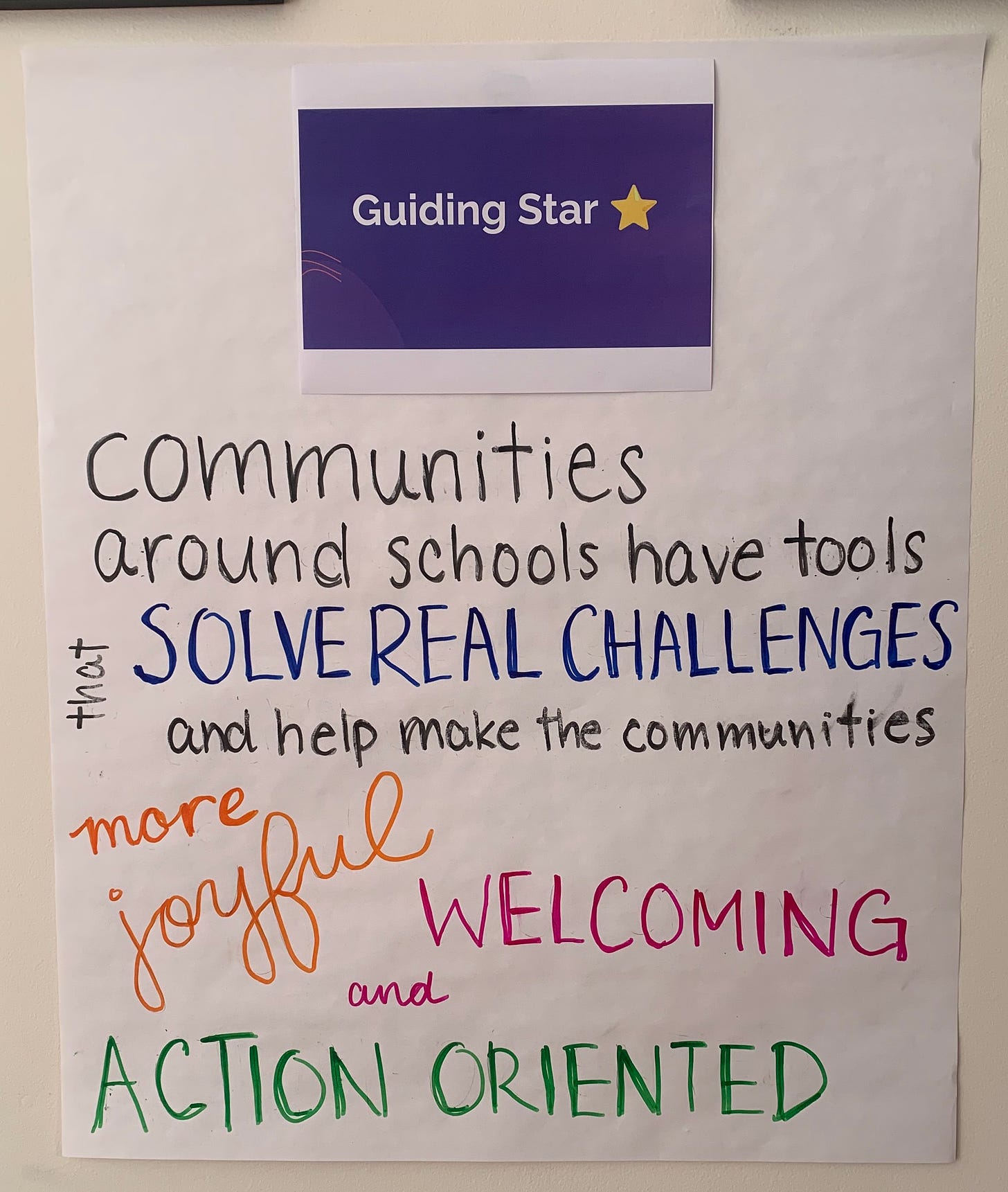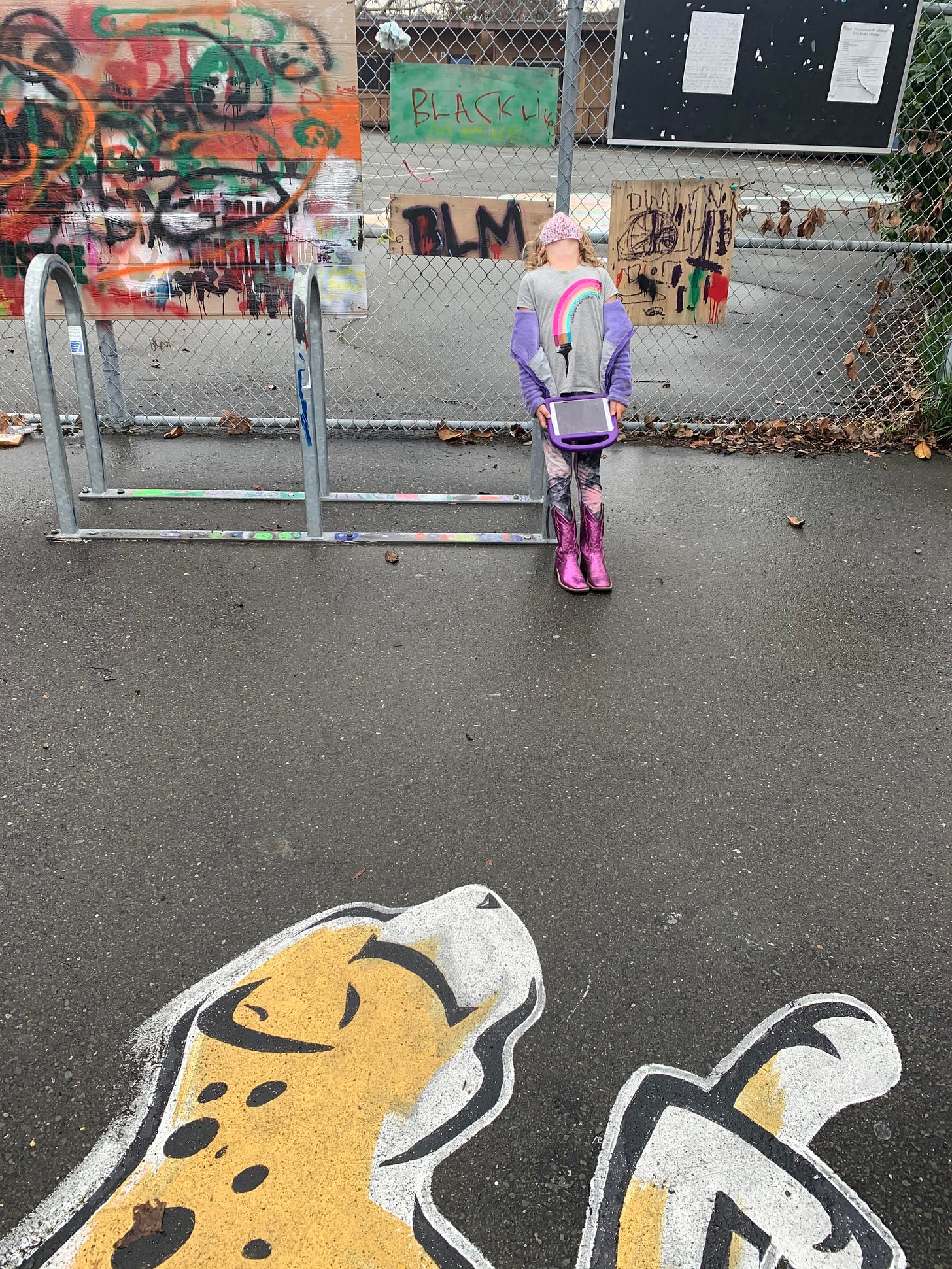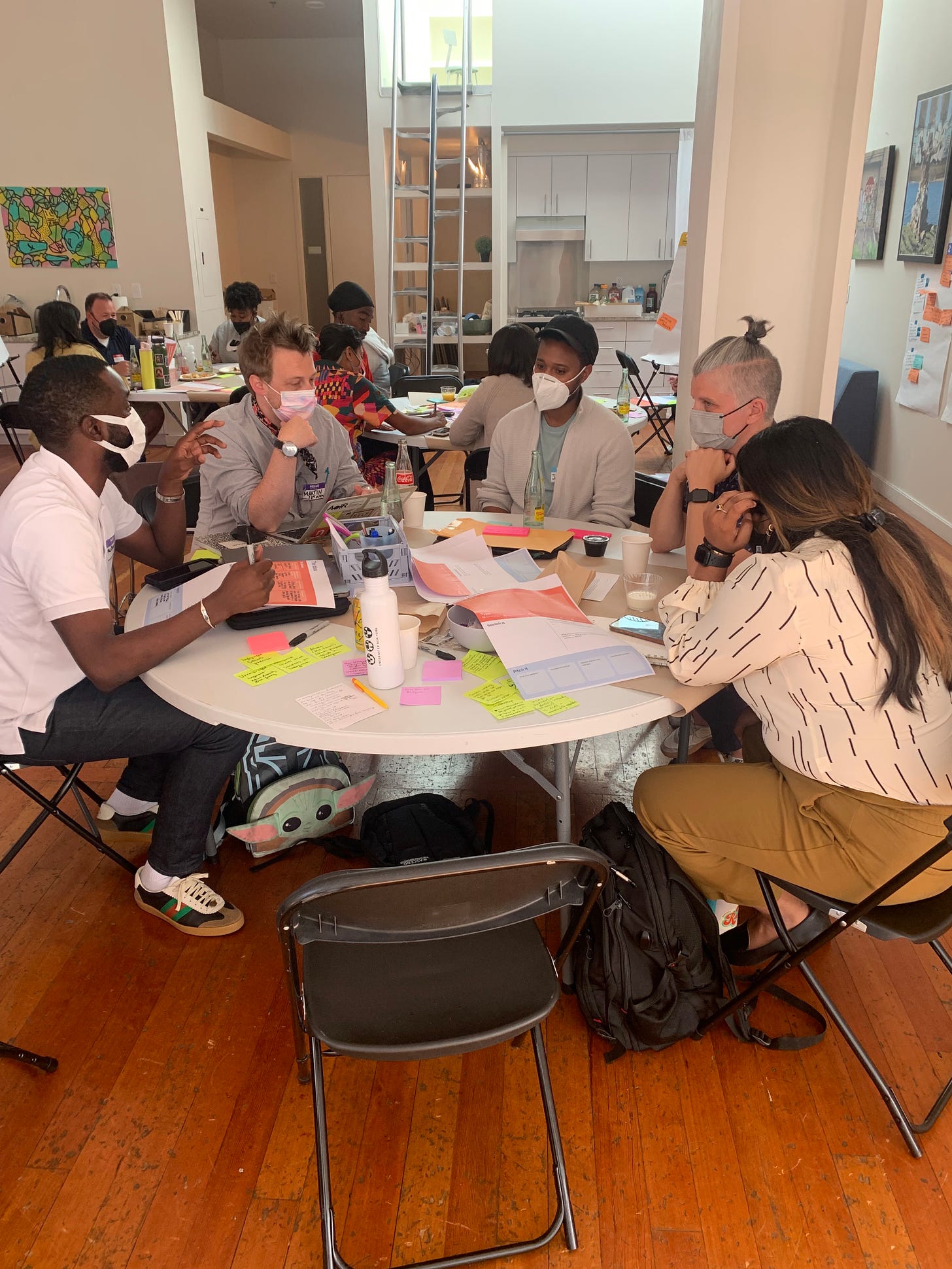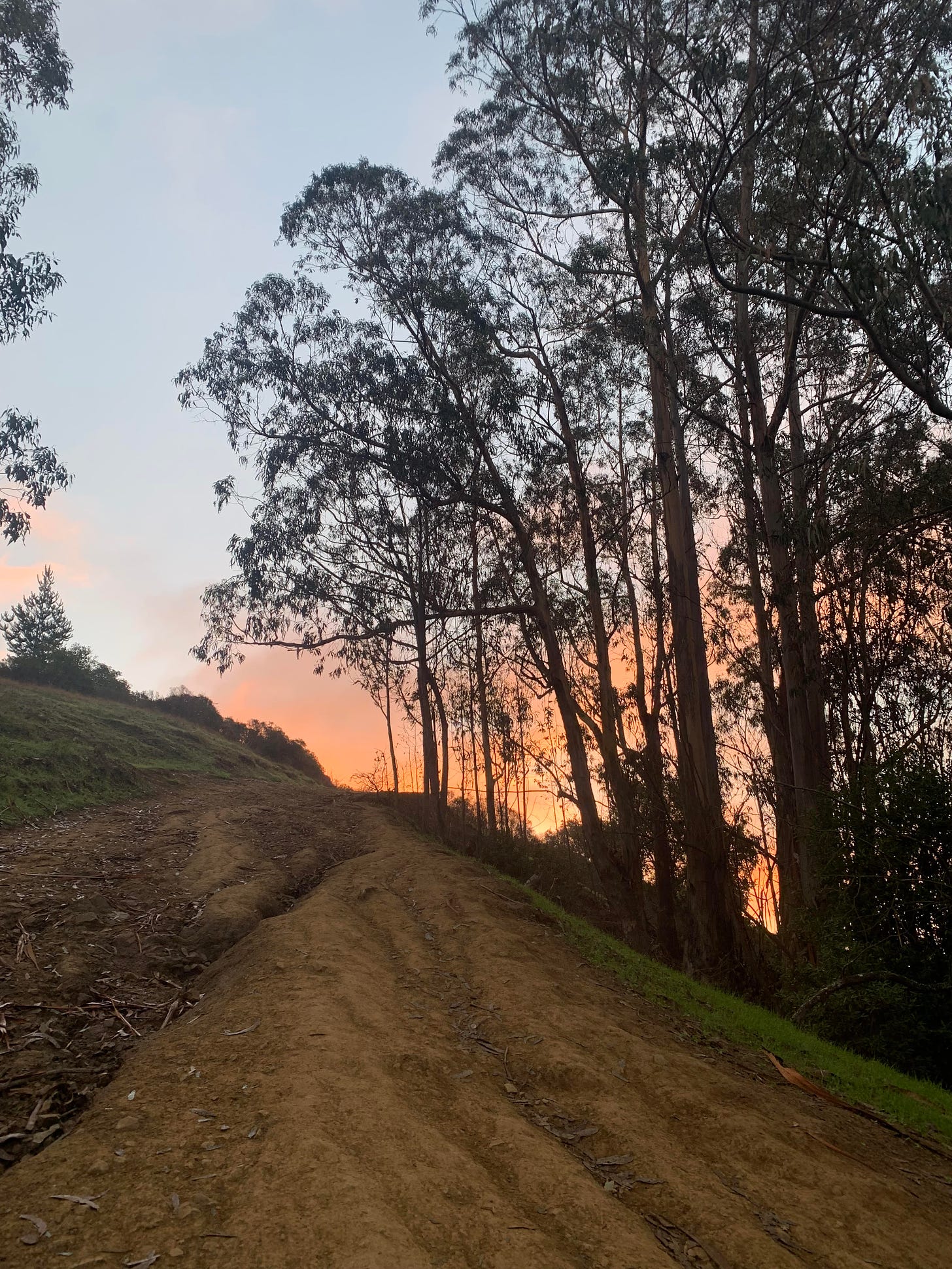What are the muscles we need in order to become something decent and beautiful?
Ya know, just a little meditation on the future of democracy.
The world feels sort of up-for-grabs lately–evidenced by worrisome developments, like our inability to care for kids and caregivers the way they deserve and the richest man in the world buying one of the most influential platforms in the world, and some that feel a little more hopeful, like David winning against Goliath in union battles. All of this seems to be asking us–in a way that I have never experienced before in my lifetime–who are we becoming?
And a related question, very much on my mind lately:
What are the strategic, social, and even spiritual muscles we need in order to become something decent and beautiful?
I collaborated with a bunch of friends last weekend on a workshop that pointed me towards one answer. New_public is a brand new organization aiming to create public spaces online that bring out the best in people. Together, we wanted to imagine what it would be like if there was a digital space where caregivers at a diverse school could share advice and joy, demystify the school system, and make decisions equitably together.
When new_public first approached me about doing this in Oakland, in the middle of a pandemic, not to mention a district rife with closure controversy and union tensions, I was reticent. How could I go to parents, grandparents, and educators that I’d built trust with and say, “I know the world is burning, but want to iterate conceptually on fluorescent sticky notes?”
But layered with the reticence was another sentiment: finally. I have spent four years parenting and reporting on schools in Oakland and one of my biggest frustrations is that we are always in triage mode–financial crisis, threat of closure, ideological binaries, vilification around every corner. When I have individual conversations with people–teachers, principals, coaches, caregivers, school board members–I am consistently blown away by the quality of humanity on display, the dedication, the brilliance. But so little of that gets channeled in a place and time where we are pretty much always in fight-or-flight mode. The best of these people is pulverized by the politics, potential connections severed by all the polarization, imaginations squashed by inequality and bureaucracy.
New_public is urging a different kind of place and time: Imagine learning and connection as success metrics, not vitriol and virality. Imagine cooperatively owned, not billionaire-owned. Imagine genuine, nuanced engagement, not misinformation and manipulation, with the inevitable complexities that arise from living, learning, and working in communities, not to mention an ailing democracy.
Imagine is the operative word here. And let me be clear: asking people to gather and imagine is a vulnerable thing, especially if they’re coming from a historically marginalized background. It takes courage to show up and let yourself believe that you will be heard, especially when you’re used to a classroom that made you feel dumb as a kid or 60 seconds on a microphone at a school board meeting that goes nowhere. It takes trust to believe that there could be an online space that doesn’t intentionally addict, surveil, or exploit you.
So here’s what we did: we gathered for a day together in a light-filled room (post-covid tests and in masks) and talked about what we wished existed and then we worked together to create it (on paper, at least). Some of us crave a way to get the pulse of a parent community via text, knowing that not everyone is going to be able to or want to come to School Site Council and Parent Teachers Association meetings. Some of us want a way to communicate what we need and what we can offer to other caregivers in our community–a ride, a resume read, an idea for how to deal with night terrors. Some of us want to have more celebration, joy, and connectivity, alongside all the hard parts of parenting. We talked about these ideas, we even pitched them to each other, and we had a lot of fun. We laughed and cheered one another on.
We also shared some real concerns, some real pain points and wounds. The elder in the room told us about having to learn how to use online platforms to help her grandchild stay in school during distance learning. One mom talked about how much she has to translate for her own and other immigrant families, and how sick she is of being in rooms like the one we were in where that isn’t fully acknowledged. Another one talked about having to speak her truth to another mom on an online platform who thought just because they both had autistic children, she fully understood her lived experience; she did not. An after school coordinator talked about how turned off she is by the performative politics of so many progressives–carefully offering their land acknowledgement on zoom calls, but not acknowledging real people when they’re right in front of them.
What I now realize was so sacred about the place and time we created together was this: there was room for all of that. There was room for imagining and being hopeful and faithful, and there was room for testifying and being angry and tired. And I think this–more than the digital products we pitched to one another at the end of the day–was evidence of the creative genius in the room, and the creative genius we need if our democracy is to survive. We must be able to acknowledge the injustice and our hunger for transformation. We must be able to tear down and build anew.
We must be able to move in and out of the darkness and the light. If we stay only in the dark, we get cynical and mean. If we stay only in the light, we get out-of-touch and cruel. In both extremes, we are too brittle to build the world our kids deserve.
As a person who has all kinds of structural privilege, I can tell you that this requires stamina from me, from us. It requires that we learn how to hear pain and critique without shutting down or falling apart, that we grow accustomed to being moved to the margin of the room as a person puts their own story at the center. And that we stay authentic and whole in the room, not disappear as a way of coping.
I don’t know exactly what it requires for the folks in the room without structural privilege, but I can only imagine it’s a different kind of stamina. Against all the evidence otherwise, believing that people with some access to power still deserve your trust and cool ideas. I imagine it requires reminding yourself that you are worthy even without fancy degrees or loaded LinkedIn networks, that your questions are not dead ends, but portals.
So, what are the strategic, social, and even spiritual muscles we need in order to become something decent and beautiful?
Maybe we should call them dawn muscles–the night and all its pain present and the day and all its promise also within reach, that liminal and wise place where we know it’s all true and it’s all possible. But only if we keep showing up and keep walking alongside one another even when it’s hard or foreign or new to feel connected.








I also believe that we each need to figure out what size our sphere of influence can be…some of us have only enough energy and heart and ability to make a difference in a very small sphere…others like you seem to be skilled and conversant in larger sphere influence. It keeps us engaged when we believe even small actions make a difference. How can I today improve the quality of life in my small sphere? Is this choice/action adding value to my world today?
Thank you for your inspiring way of being, and your deep caring. 💕
Oh! I first tried to “like” this repeatedly; not sure if they all registered. I like to recall from where I learned of you; that is from Integrated Schools. Besides social justice concerns I have spent several years out of the classroom examining online and through books systems thinking and education. I have groups I spin in/with drawing inspiration and sharing back what I find. Your words are very meaningful here. I only hope I will be able to remain “with it” as I traverse new communities and platforms. Are you planning a new group at New_public for us? Are we to create our own groups? I am not sure yet when and where we are meant to jump in and start swimming. One note: I hope there will be allowed time and space to “sit back” at times to deal with other aspects of one’s life as they come, or to just listen/think before jumping in.
You’re asking us to embrace the term/acronym VUCA; volatility, uncertainty, complexity, and ambiguity! Thank you! Peace!